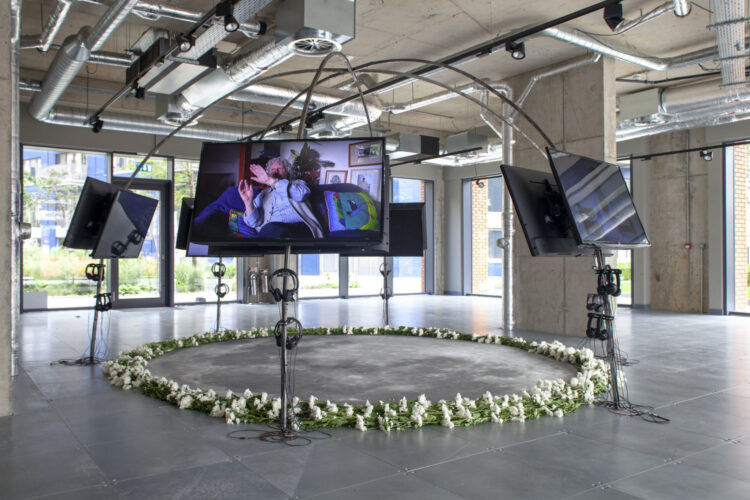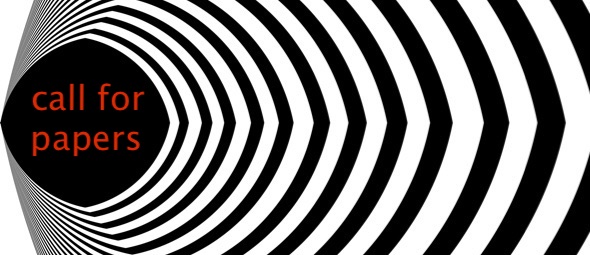Managing Editors: the Editorial Team
Deadline for proposals: CLOSED
There is no doubt that the magical*, as well as the spiritual, is a point of perennial interest in pop-culture. Currently it has returned in a neoliberal disguise urging the purchase of crystals, essential oils, and the burning of Palo Santo, promising a balanced state of mind. The consumerist frenzy surrounding such objects often disregards the labour conditions under which these objects are produced, as well as the ecological devastation their manufacturing or extraction brings about. This new-age spiritualism mixes a variety of practices from far-reaching geo-zones often as an aesthetic addition to Western life. Moreover, in its focus on consumerism, it seems to be the twenty-first century version of indulgence. Such an indulgence, promising protection from suffering in purgatory, was usually granted by the Catholic Church in exchange for good deeds or the recital of prayers. However, in the late Middle Ages, the Catholic Church monetized this exchange, earning the church a fortune. This practice – although outlawed in 1567 – remains present in the current hype encouraging us all to ‘indulge’ in a plethora of spiritual objects. In return for an investment of capital, the myriad benefits of such objects can be ours.
This critique draws on critical academia of colonialism, capitalism, ecology and gender studies. As much as the current interest emphasises the continued manifestation of these systems of hierarchy, exploitation and control, these spiritual and magical practices can also be weaponised. Recently, in academia there has been a focus on European witches and Indigenous practices to draw up histories of violence and carve out space for future ecologically aware practices. Such academic practices propose ‘the magical’ (or spiritual, religious, esoteric) to be a fundamental threat to the logic of colonialism, capitalism, ecocides, and gender constructs, and attempt to enchant a disenchanted world. The magical, in essence, also describes the unexplainable, the undefinable, that might arise out of thin air as slight promise of change.
In the twenty-first century, we have witnessed a steady increase in interest in magic within contemporary art practices around the world. Through the performance Drift (2020), Jennifer Tee proposes new rituals to discuss the intersectional relationship between the climate crisis and its impact on marginalized communities. Using performed poetry and movement, she mimics the ecological processes of recycling and looping. Another artist that comes to mind is L, whose practice revolves around making ‘spells’. They fill glass bottles with mineral oil and objects such as light bulbs, flower petals, plastic dinosaur toys that either sink or float, as in the work Spell for Divine Presence (2019). Additionally, the artist Tabitha Rezaire incorporates teaching on auras, the power of intuition, and tarot readings into her installation Satellite Devotion (2019). Artists uncover and highlight ancestral knowledges and suggest new rituals for a dying Earth. While on one hand, the surge of spiritualism can be interpreted as cruel appropriation, on the other, artists make room for the magical and the spiritual to counter colonial-scientific knowledges, and to build bridges to the nonhuman.

This issue of Kunstlicht begins with the observation that practitioners of ‘magic’ in the widest interpretation of the word, adhere to rules, rituals, spells, recipes, or instructions. Written down, carefully translated, or transferred orally, these rituals tie magic to cyclical behaviours, bound in tradition. Whereas magic is often viewed as an invisible power, it often requires physical tools. Hence, object and performance, tool and ritual, parallel one another tying the spiritual and the magical to art. At this intersection, this Call for Papers raises the question of which rituals we need now.
To elaborate, we welcome writing on contemporary magical engagements, whether that be artistic practices that spark new magic rituals, essays which expound why our contemporary society is in need of some magic, or articles that critique this current within art history itself. Do you want to question how fleeting magic can provide meaning and certainty, or how the format of rituals and spells can create pathways for change? Perhaps you are interested in the enchanted objects used in contemporary rituals, or critical of their commodification and provenance. What does it mean to write a spell, cast a spell, or make a tool for the practice of magic?
Proposals (200-300 words) with attached résumés can be submitted via redactie@tijdschriftkunstlicht.nl. Selected authors will be invited to write a 2000–3,000-word paper (excluding footnotes).
Authors and artists who publish in Kunstlicht will receive three complimentary copies. Unfortunately, Kunstlicht is not able to provide an author’s honorarium. Two articles will be selected to be available online. Two years following publication, papers will be submitted to the freely accessible online archive. The editorial board reserves the right to decline contributions.
Kunstlicht is a volunteer-run academic journal for visual art, visual culture, and architecture, founded in 1980. It is affiliated with the Arts & Culture department of the Vrije Universiteit Amsterdam, but operates from an independent foundation. Kunstlicht is published three times a year, and features both scholarly and artistic contributions.
List for further research:
- Sara Shin and Rebecca Tamás (eds), Spells: 21st Century Occult Poetry, 2018
- Silvia Federici, Caliban and the Witch: Women, the body and Primitive Accumulation, 1998
- Dale Turner, This is not a Peace Pipe: Towards Critical Indigenous Philosophy, 2006
- Lee Harrington and Tai Fenix Kulystin (eds), Queer Magic: Power Beyond Boundaries, 2018
- Mark Pilkington(ed), Strange Attractor Journal Four, 2011
- Federico Campagna, Technic and Magic: The Reconstruction of Reality, 2018
- 13th Gwagnju Biennale: Minds Rising, Spirits Tuning, Bi-Monthly Journal
* In this Call for Papers, we refer to ‘magic’ rather than ‘the magick’. We are aware that the spelling of ‘magick’ is sometimes used to make the distinction between ‘stage magic’ (illusionism) or ‘Harry Potter Magic’ and magic as spiritual practice.

